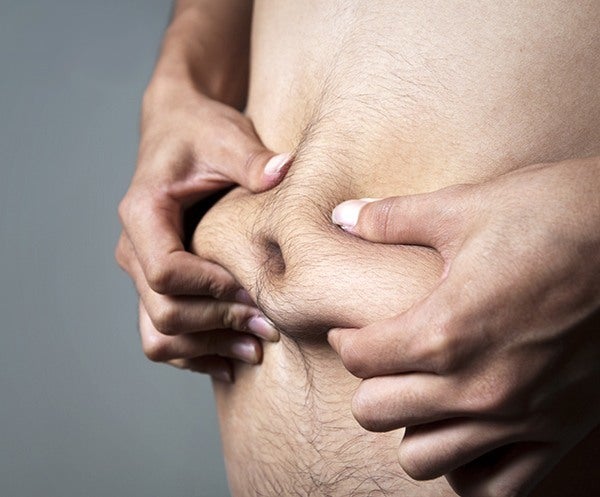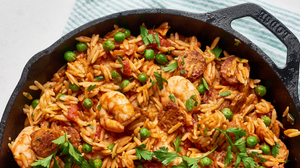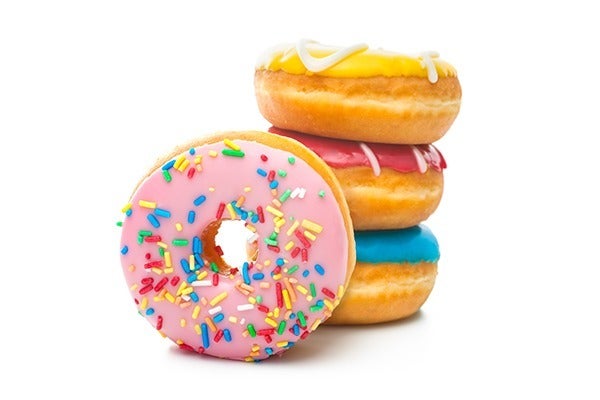
Weight loss and weight gain aren’t controlled by your stomach; they’re controlled by your brain, so it’s important to know how your brain reacts to the number of calories (high or low) that you’re eating.
Your neurological system has set responses to every variation of your nutrient and calorie intake. Those responses are a systematic signaling of several key hormones that stimulate fat loss, fat storage, hunger and fullness. It’s important that you know what these responses are if you want to lose weight without starving yourself.
It can help explain why one person can cut their calories to the bone and actually gain weight while another person of the same gender, size and activity level can eat quite well and still lose weight. If you’re like most dieters, that one has frustrated you at least once.
What I want to share with you is how your brain responds when your calories are too low for weight loss and how it responds when your calories are too high.
How Your Brain Reacts to Too Few Calories

One of the most common mistakes dieters make is to cut their calories too low. They assume that weight loss is all math, so the fewer calories they eat, the more weight they’ll lose. This is actually the opposite of what happens.
When you consume too few calories, your brain sends signals to several key hormones, indicating that you are facing a food shortage, whether you are or not.
One of the most important of these is cortisol. Cortisol is a stress hormone designed to help you conserve fat during times of stress or famine and burn it as fuel when it’s not needed. When your brain perceives famine, it stimulates the release of cortisol into the bloodstream. One of the things that stimulates the most cortisol release is eating too little.
High cortisol levels in the bloodstream will actually prompt your body to store almost every calorie you eat and it stores them mainly in the fat cells on your abdomen. This is one of the main reasons that people who cut calories too low will eventually see their weight loss stop and even see the pounds creeping upward.
Two other hormones effected are leptin and ghrelin. Leptin is a hormone that controls your feeling of satisfaction and fullness. Ghrelin is a hormone that stimulates hunger. When you eat too little, your leptin levels go down and your ghrelin levels go up. This means that you constantly feel hungry and when you do eat, you’ll have a tendency to overeat. This is why low-calorie diets leave you ravenous and why, when you finally fall off the diet, you do so with an entire pizza rather than just a slice. Ghrelin is your brain’s way of trying to get you to eat more and since your ghrelin level is high and your leptin level is low, it’s hard to tell when enough is enough.
How Your Brain Reacts to Too Many Calories
When you eat too many calories, your brain responds slightly differently.
Cortisol levels do go down, which should stimulate your body to burn some of that stored fat as fuel. Unfortunately, it’s almost impossible to eat too many calories from fresh, whole foods because they’re so nutrient dense that you fill up faster and stay full longer. Most people eating too many calories are getting at least half of those calories from processed and sugary foods and those foods get a different response from the brain. One of the biggest responses is a spike in insulin levels.
Insulin’s job is to get sugar (which includes carbs broken down into glucose) out of your bloodstream, take it to the liver to be converted into glycogen and then transport that glycogen into your muscle cells to be used as fuel right away or stored there for later. Two things go wrong when you’re eating too much.
First, even if you manage to overeat healthy foods, your muscle cells will only accept what they need to function or to replenish their limited stores. Unless you start or have just finished a strenuous hike or a hard workout, your muscle cells will turn that glycogen away. When this happens, insulin transports that unneeded energy to the fat cells to be stored.
When you eat food high in sugar and processed or refined flours, your brain stimulates the release of a lot of insulin at once and this intensifies the negative impact of overeating, and in a more long term way.
Repeated spikes in insulin levels eventually lead to insulin resistance in the muscle cells. In other words, it takes more and more insulin to get glycogen through the cell walls, even when your muscles need it. This results in what is known as metabolic syndrome and usually a steady weight gain, mainly around the abdomen, even if you cut calories.
Eat Enough but Eat Wisely
Your takeaway from this is that starving your body will not force it to shed all of that unwanted fat, and eating more can actually stimulate weight loss, but only if you’re eating more of what’s good for you. (Bad calories are a different story.)
Your brain is in control of your weight loss and your brain is too smart for tricks. Eventually trying to trick your brain will catch up to you so be mindful of what you eat and you and your brain will conquer your fat loss goal.
One of the great things about exante Shakes are that they're low-calorie, but that's not the only benefit - high in protein and fiber and can help curb cravings for unhealthy foods.

Related Articles










